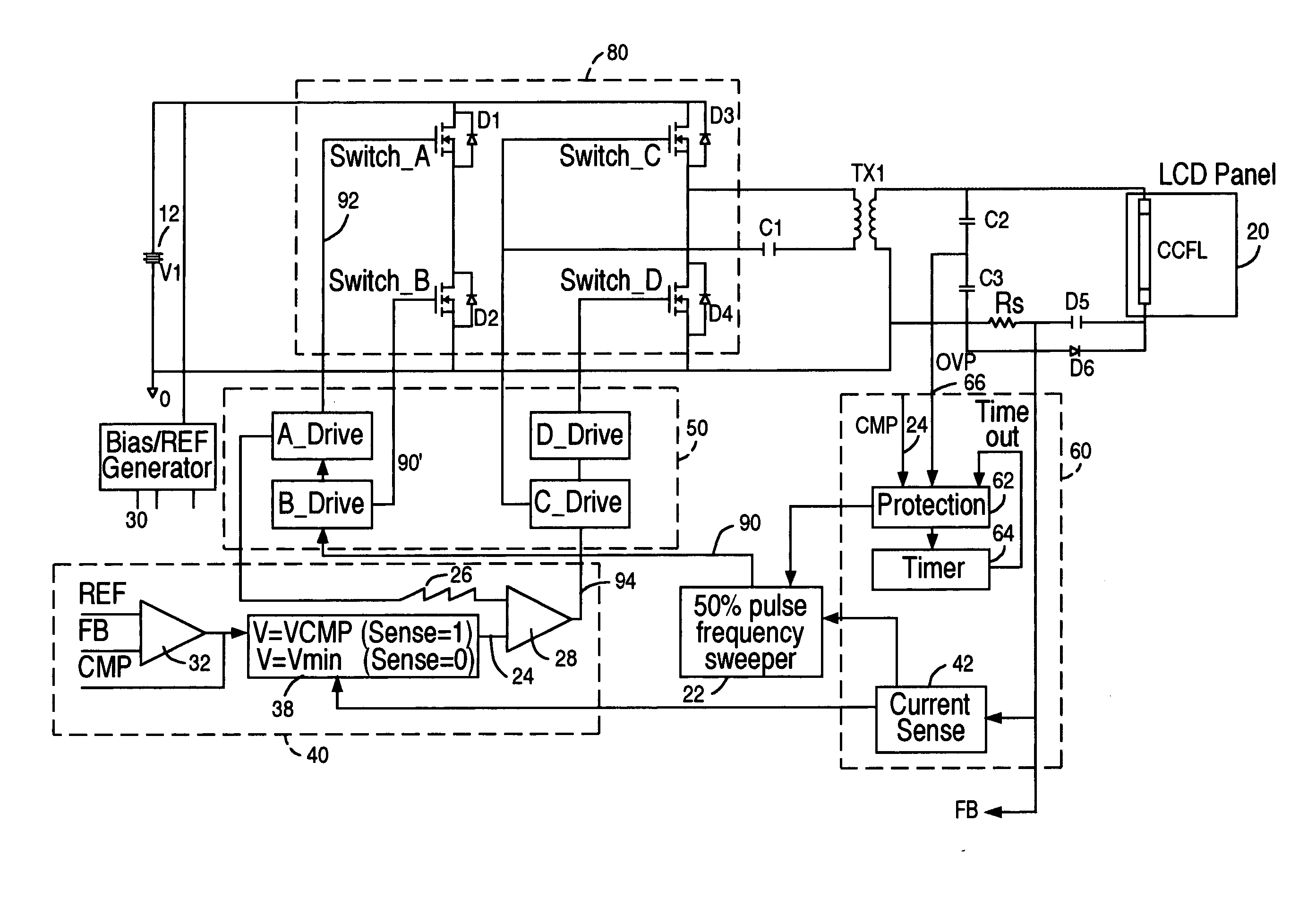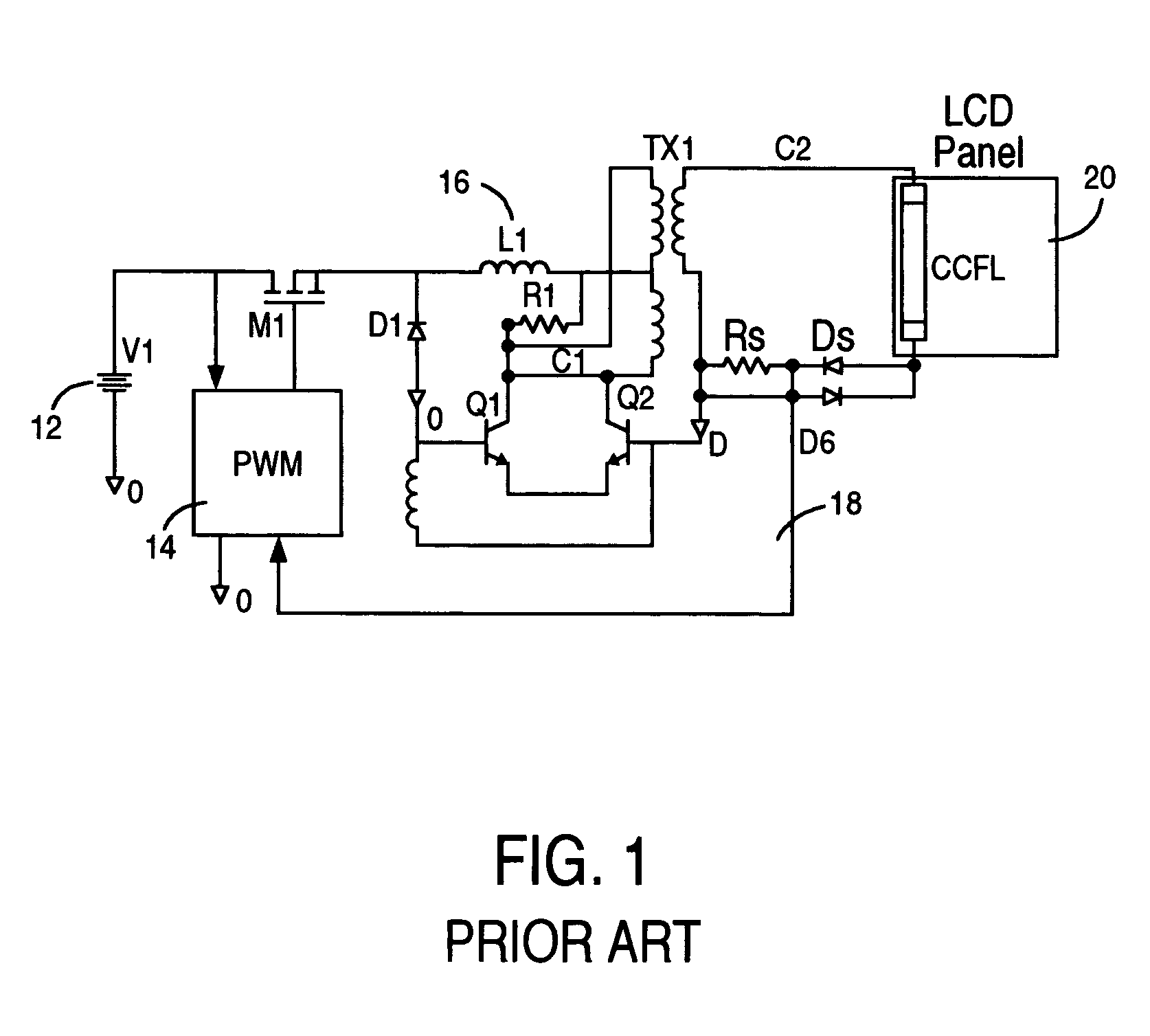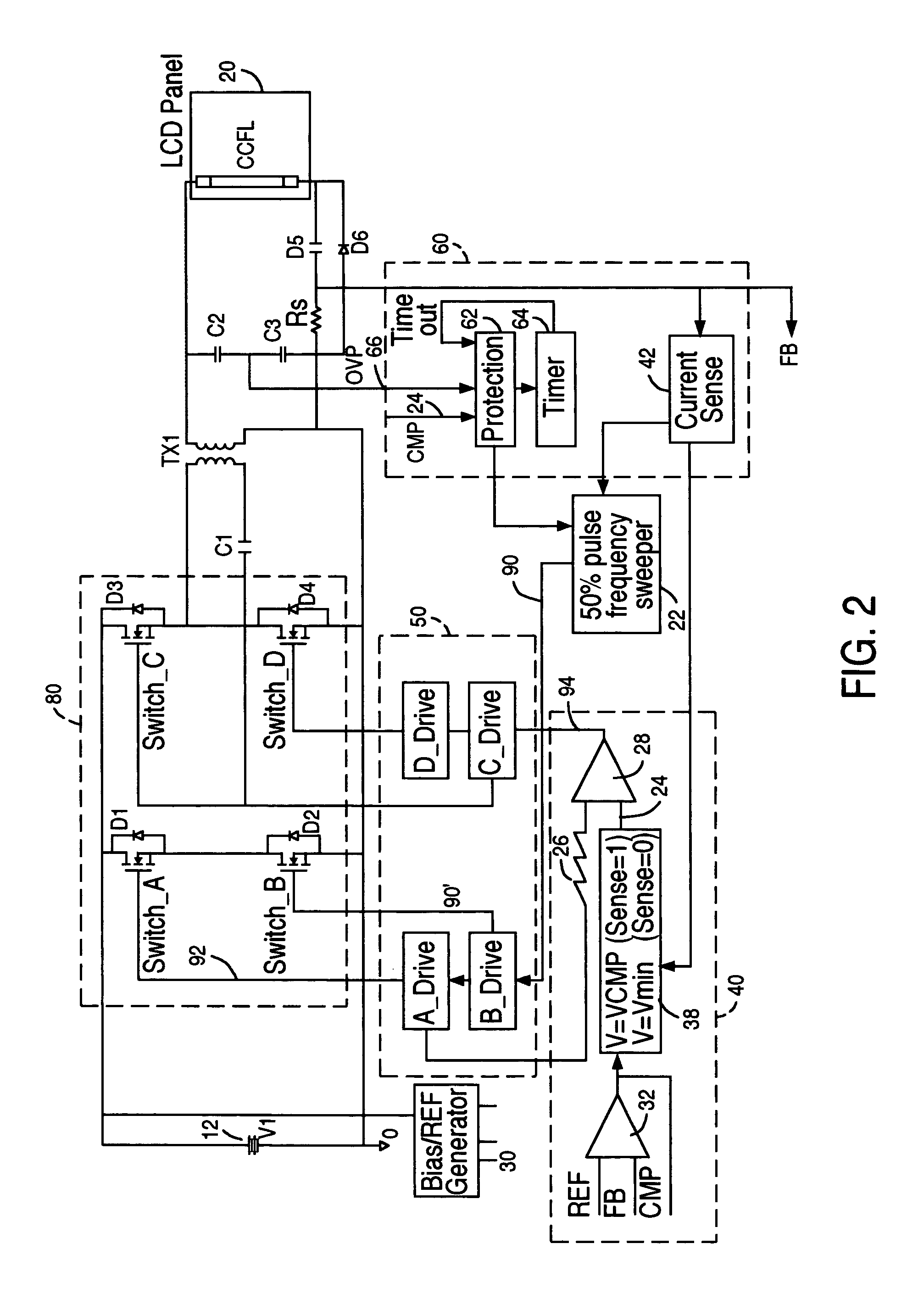Liquid crystal display system with lamp feedback
a technology of liquid crystal display and lamp feedback, which is applied in the direction of electric variable regulation, process and machine control, instruments, etc., can solve the problems of low efficiency, two-stage power conversion, variable-frequency operation, and/or load dependence, and achieve the effect of reducing the power supplied
- Summary
- Abstract
- Description
- Claims
- Application Information
AI Technical Summary
Benefits of technology
Problems solved by technology
Method used
Image
Examples
Embodiment Construction
[0024]While not wishing to be bound by example, the following Detailed Description will proceed with reference to a CCFL panel as the load for the circuit of the present invention. However, it will be apparent that the present invention is not limited only to driving one or CCFLs, rather, the present invention should be broadly construed as a power converter circuit and methodology independent of the particular load for a particular application.
[0025]As an overview, the present invention provides circuitry to controllably deliver power to a load using feedback signals and pulse signals to adjust the ON time of two pairs of switches. When one pair of switches are controllably turned ON such that their ON times overlap, power is delivered to a load (via a transformer), along a conduction path defined by the pair of switches. Likewise, when the other pair of switches are controllably turned ON such that their ON times overlap, power is delivered to a load (via a transformer), along a c...
PUM
 Login to View More
Login to View More Abstract
Description
Claims
Application Information
 Login to View More
Login to View More - R&D
- Intellectual Property
- Life Sciences
- Materials
- Tech Scout
- Unparalleled Data Quality
- Higher Quality Content
- 60% Fewer Hallucinations
Browse by: Latest US Patents, China's latest patents, Technical Efficacy Thesaurus, Application Domain, Technology Topic, Popular Technical Reports.
© 2025 PatSnap. All rights reserved.Legal|Privacy policy|Modern Slavery Act Transparency Statement|Sitemap|About US| Contact US: help@patsnap.com



